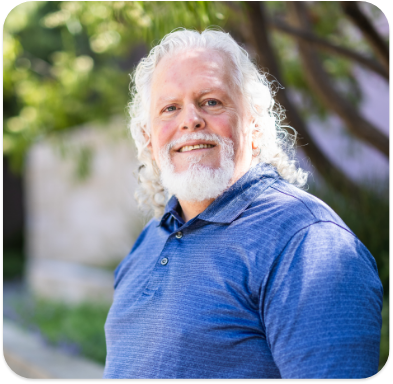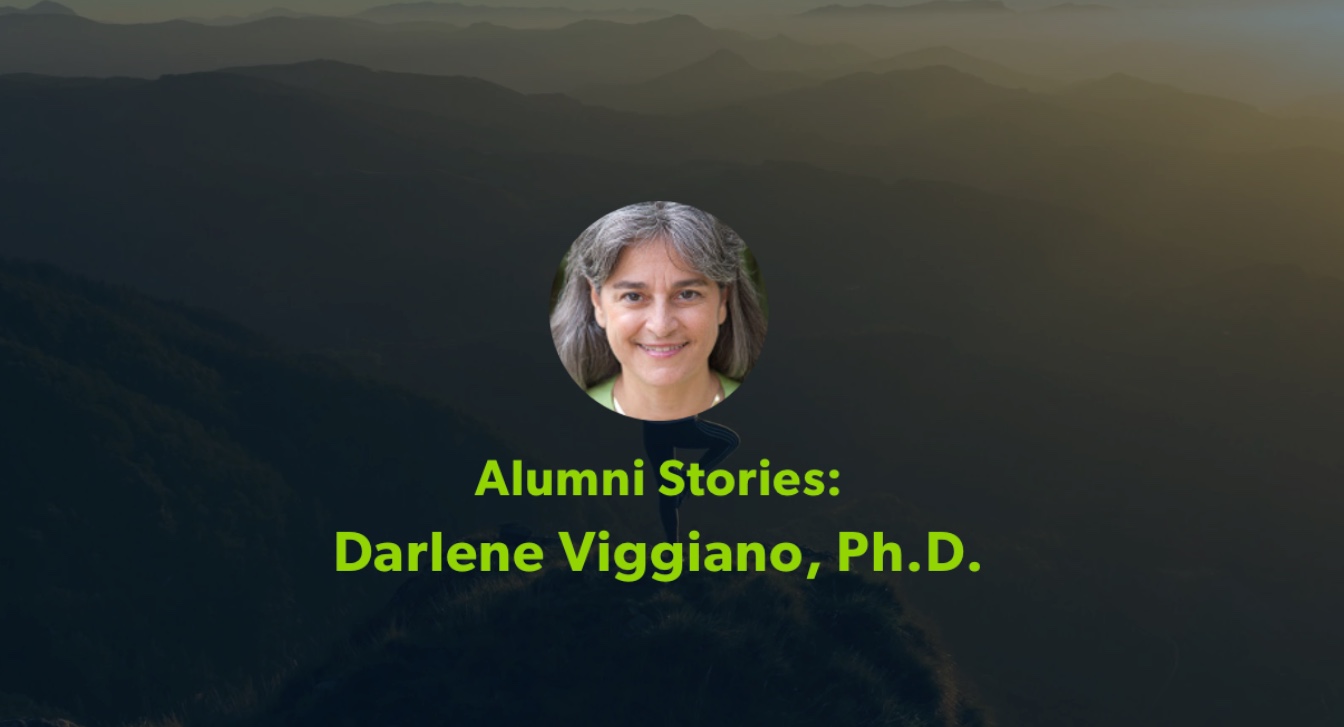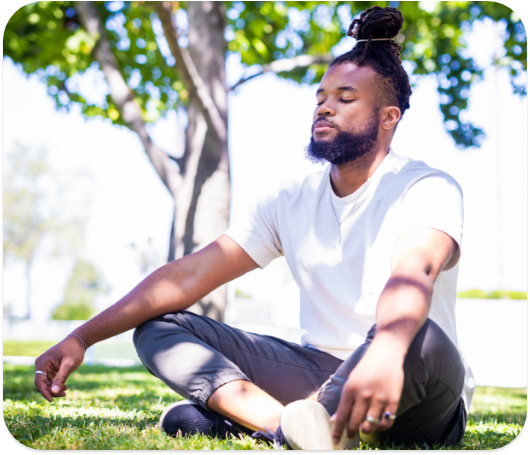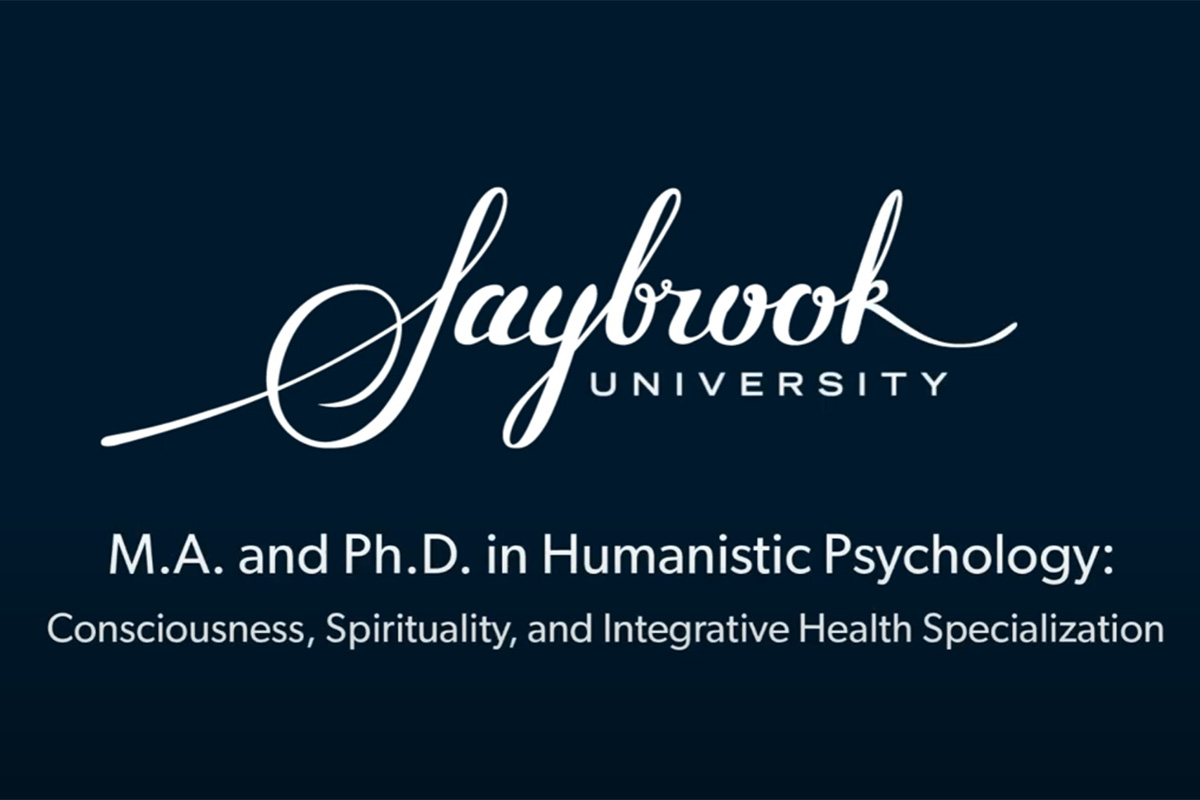Expanding Spirituality, Expanding Consciousness, Expanding Well-Being
With new insights about consciousness and the growing popularity of spirituality at the helm of this program, the spiritual psychology doctorate program is the pursuit of a comprehensive, interdisciplinary understanding of how embracing spiritual approaches leads to optimized personal and collective well-being. In this program, you will engage with multidisciplinary knowledge, such as transpersonal psychology and research, exceptional human experiences, vibrant longevity, spiritual development, dreamwork, personal mythology, hypnosis, and world wisdom traditions, to pioneer creative solutions for societal challenges. Within the Consciousness, Spirituality, and Integrative Health Specialization curriculum, you will also study depth and transpersonal psychology, energy medicine, spiritual creativity, imagery, contemplative and indigenous practices, esoteric and mystical traditions, Earth-and-Cosmos-honoring practices, psychomythology, and many more topics you can apply across a range of diverse psychology settings.
This online psychology Ph.D. program is not a clinical psychology program, nor is it designed to prepare students for future professional licensure. Students interested in such programs should consider admission to the Ph.D. in Clinical Psychology degree program.
Consciousness, Spirituality, and Integrative Health Specialization Job Outcomes
Upon completion, you will have an enhanced skill set and deepened perspective to augment your current practice or career. Additionally, with the appropriate licensure, if necessary,* you may expand into other roles, including:
- Transpersonal psychologist
- Transpersonal practitioner
- Teacher, instructor, and author
- Spiritual mentor and guide
- Transpersonal consultant
- Transpersonal therapist
- Mindfulness instructor
- Integrative health consultant
- Spiritual community leader
- Academic leader
- Researcher
*Our online Ph.D. in Psychology program is not designed to prepare graduates to qualify for clinical licensure or certification.
Other Psychology Programs
Interested in another specialization in psychology? We offer multiple doctoral programs that may align more closely with your goals. We also offer dual specializations.
Program Components
Admissions Requirements
At a minimum, you must have received or anticipate receiving prior to the start of the semester you are applying into, a master’s degree from a regionally accredited college or university before applying for a doctoral degree at Saybrook. Applicants for the online Ph.D. in Psychology: Consciousness, Spirituality, and Integrative Health Specialization degree must submit the following documents:
- An official transcript from an accredited university demonstrating successful completion of a master’s degree, with a 3.0 GPA or better, though exceptions may be made
- Resume or CV
- Personal statement
Invest in Your Future
Saybrook University remains committed to keeping higher education affordable and accessible. Our Financial Aid Department is ready to offer guidance and support in determining suitable financial assistance tailored to your needs, including potential scholarship opportunities, grants, and more.
Cost
Saybrook wants you to have the information you need to make an informed decision about your academic and career aspirations. Our cost calculator provides an estimated cost of attending Saybrook to earn your Ph.D. in Psychology: Consciousness, Spirituality, and Integrative Health Specialization degree.
Sample Courses
Seminar in Consciousness, Spirituality, and Integrative Health
This three-credit course provides an introduction to the primary themes in consciousness, spirituality, and integrative health. The course includes studies in transpersonal psychology as an important way to address these themes. You will be introduced to foundational definitions, concepts, and theories. This course will also serve to orient you to the Consciousness, Spirituality, and Integrative Health Specialization, including curriculum paths, vocational possibilities, and relevant professional organizations and conferences.
Interdisciplinary Foundations for Vibrant Longevity
This three-credit course will examine theoretical considerations and interdisciplinary research in, as well as evidence-based foundations for, health span and vibrant longevity. It will assist you with exploring healthful and vibrant longevity as a biopsychosocial-spiritual phenomenon; as a creative architectural design; and as a meaning-making process, practice, path, and destination.
Catalog
Please refer to our academic catalog for more information on the Ph.D. in Psychology, Consciousness, Spirituality, and Integrative Health Specialization program.
Career Outcomes
Saybrook University prepares you to make an impact in a variety of high-demand careers. Below, you will find possible career options and salaries associated with this degree.
Data is pulled by a third-party tool called Lightcast, which includes data from sources including the U.S. Bureau of Labor Statistics, the U.S. Census Bureau, online job postings, and other government databases. The information below represents a regional and national career outlook related to this degree program*. Saybrook University is dedicated to assisting you in achieving your career goals.
*Many degree programs are intended to fulfill licensure requirements in specific states. The data shown here may not represent the state where you currently reside. For more information on how this program is applicable to the requirements of your state, please speak with your admissions specialist.
University Learning Experience
Our Ph.D. in Psychology: Consciousness, Spirituality, and Integrative Health (CSIH) Specialization program is a 100% online program. While the core of this program is completed asynchronously, there are some synchronous, online features designed to deepen your educational experience. We call this a Virtual Learning Experience (VLE). Fall semester VLEs are required for Psychology students. In addition to the fall semester VLE, you will begin your studies with a virtual Welcome Week. Welcome Week activities, including a program orientation, are held online during the week before the start of Fall and Spring semesters. All Psychology students will be required to attend only the five-day, fall semester Virtual Learning Experience (VLE) each academic year. The in-person Community Learning Experience (CLE) is also available for you to explore. The CLE is held every odd-numbered year. It is optional and not required to complete the program.

Humanistic Psychology Faculty
Saybrook’s Humanistic Psychology faculty are practitioner-scholars dedicated to advancing their field through continued practice and comprehensive instruction. Meet some of our faculty members below.

- Director, Existential-Humanistic Psychology Specialization
- Interim Coordinator, Jungian Studies Specialization
- Member, American Psychological Association Division 32, Society for Humanistic Psychology
- Former president (2019-2020), American Psychological Association Division 32
UNBOUND: Humanistic Psychology
Designed for those who wish to contribute creatively to improving the human condition. Students are encouraged to explore complementary approaches—including meditation, nutrition, energy medicine, biofeedback, and spirituality—alongside more traditional forms of care.


Alumni Stories: Darlene Viggiano, Ph.D. (MFT)

Famous Athletes and Sport Psychology
Ready to Take the Next Step?
Submit an inquiry and one of our admissions specialists will connect with you to answer your questions and guide you through next steps.

























